6 Things Africa has taught me as a Writer
“The shortest distance between the truth and a human heart is a story.”
-Anthony DeMello
This week my wife DeDe and I celebrate a year in Africa. Often times I look around and think of how far I am from my Louisiana piney woods roots.
It’s been an eventful year full of growth, frustration, change, disappointment, and joy.
Very similar to life back in the good ol’ U.S. of A.
Six lessons loom large in what this year has taught me as a writer and also as a person:
1. It’s always a draft.
The year has been one of constant change:
- Selling our home where we’d raised our family and lived thirty years.
- Leaving the Southern rural culture for the red dirt of east Africa.
- Learning Swahili to work in Democratic Congo, then being switched to South Sudan and Arabic. Hatuna matada for sure!
- Our country, South Sudan, descending into chaos and anarchy as we watch our new friends suffer and doors close.
- 2014 is poised with more of the same. It seems change will be the only constant.
I’ve learned to journal and live in pencil.
Life requires erasures. 2013 has been similar to the process of writing a novel: sometimes our characters take over and send in directions we didn’t choose.
But the end result is almost always a better novel as well as a richer life.
In spite of the change and uncertainty, I’ve never been more excited about life, our mission, or my writing than today.
I’m confident that God is still in control and still trustworthy.
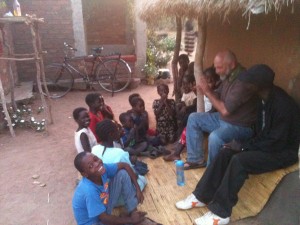
2. It’s always about the story.
Regardless of our genre, we’re all storytellers. Our challenge is putting down words that at least attempt to the degree we first heard, saw, or imagined.
I’ve stepped from one storytelling culture into another. African culture is rich in gripping stories, proverbs, and history.
The best stories are always about the lives and struggles of people. Stories put a personal face on both tragedy and triumph. I
Instead of statistics about the daily struggle Africans face, I share about a ferry ride with a young island boy returning to the mainland for a new school term. His mother holds a long stringer of tilapia in one hand and a plastic bag holding two live ducks. The boy grins. “That’s how she’s paying my school fees.”
Numbers can be cold. “Over 1000 dead in South Sudan and 250,000 displaced.”
But the story of my Nuer friend Kun, trapped in the capital’s UN compound for three weeks. Paralyzed with fear that certain death by Dinka soldiers await him outside the gates. His frantic calls coupled with my inability to help.
It’s always about people.
It’s always about their stories.
Our job is simply the struggle to tell them well.
I hold the record for being led by the hand around Africa. Seriously, it’s a great sign of friendship when an African takes your hand.
3. Humility
Writing and the subsequent attempt at being published is an extremely humbling experience. Sharing our thoughts and words with the public is akin to running down the street in your underwear. (Do other writers have that dream as often as I do?)
This public inspection and attending rejection is so deflating that many abandon the journey due to the disappointments that are part of the process. I know about being turned down. My rejection folder is as thick as anyone’s.
However, Africa has humbled me like nothing else.
I speak the local language on about a three-year-old’s level. The nationals laugh, correct me, yet still show such grace.
The taxi driver who delivers me to the market is fluent in five languages. I’m an American so you can easily guess how many I’ve mastered.
I’m greeted daily with stares and cries of “Mzungu” and requests for money or assistance in “coming to America. “
Everyday gives me opportunity to look odd, stupid, and awkward,and I seldom disappoint. It’s part of the experience.
It’s all about humility.
I’ve always believed the humble writer is truly the best writer. African has allowed me lots of practice.
I wouldn’t trade it for all of the tea in Kenya or coffee in Rwanda.
4. It’s all about being Observant.
Africa rewards the curious soul.
During this past year, I’ve filled up numerous journals, taken hundreds of photos, and recorded dozens of voice memos.
I have frustrated myself and others with my obsession to capture every image, thought, and face or smile.
But it’s the observant eye that captures the image.
The curious soul that dares ask the difficult question yet receives a memorable story or new friend in reply.
Our missionary term is already one-third completed. I have mixed emotions about that staying or going home. Regardless, knowing that I may never pass this way again, I’m determined to capture it in my mind and heart.
5. I’m learning the Art of Gratitude.
Africans have so little compared to Westerners. Yet they are as a whole cheerful and optimistic.
My African teachers are so grateful for everything. Oftentimes it seems they enjoy their little much more than our largess.
They understand “Give us this day our daily bread” and thank God for the bread when it appears.
I’m honing my degree of gratitude from this experience. Being thankful is simply a habit as are the twin sins of ingratitude and arrogance.
I’m not sure how I’ll handle the pet food aisle at Wal Mart when I return home, but I committed to being grateful for every gift that comes my way.
This painting hangs in the Anchor Hotel in Jinja, Uganda. It captures perfectly the African spirit.
6. Finally, I’ve been reminded of the real reasons I write.
It’s who I am.
It’s what I do.
Presently I’m not entering contests or seeking daily for that ever elusive contract.
I’m simply writing. Last week, I started Journal #68 of my life journey. If I never published another word, I’d still write. It’s who I am.
My job in Africa is researching the unreached people groups of South Sudan. But that’s only the initial part.
My assignment is to tell their stories in a way that will lead Americans to pray, give, and come over to help.
My calling is writing with influence and impact.
Influence is how far my message can go. It’s the ripple effect of our writing.
Impact is how deep our story can dig into a person’s heart.
I hope wanting to have influence and impact isn’t sinful. If it is , I have sinned greatly.
The Internet Age opens so many doors for influence. I can tweet about a refugee camp in northern Kenya in real time as I share prayer needs and faces.
As I write for influence and impact, my reward isn’t a glowing review, award, or publishing contract. It’s a Facebook reply that states, “I feel as if I’m over there with you.”
It’s that volunteer, moved by a story, who comes to Africa and returns home with a fresh passion burning in his or her heart.
That’s influence.
That’s impact.
And it’s why I write.
My six words for 2014 include Influence and Impact.
Bio
Curt Iles now writes from Entebbe, Uganda where he and his wife DeDe serve as researchers with the International Mission Board. He blogs regularly at http://www.creekbank.net and can be reached on social media at curtiles. The author of eleven books, Curt is represented by The MacGregor Literary Agency.
 Creekbank Stories Curt Iles, Storyteller
Creekbank Stories Curt Iles, Storyteller
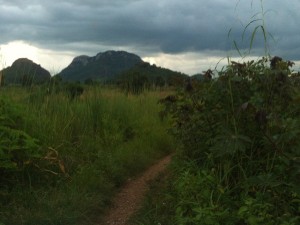

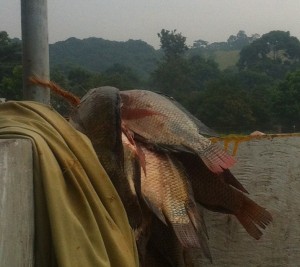
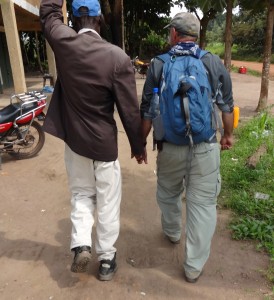
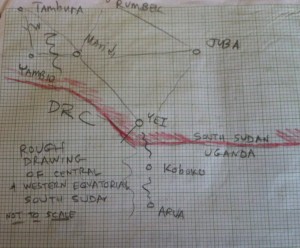
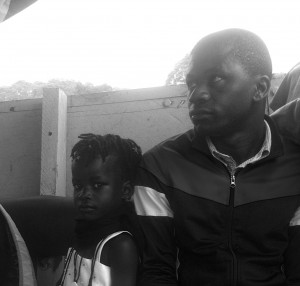
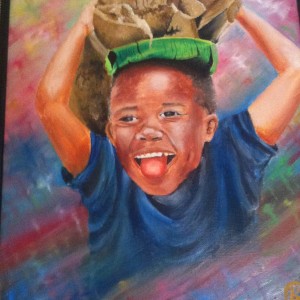
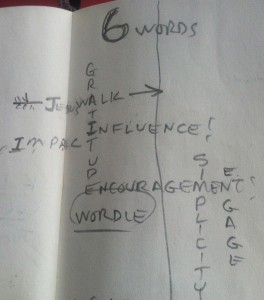

Thanks for blessing my day. You are so special to so many. You will never really know how many peoples lives you gave influenced and made just a little better.
Love to hear your stories!
Those are 6 great lessons Curt! Thanks for sharing. Praying for you!